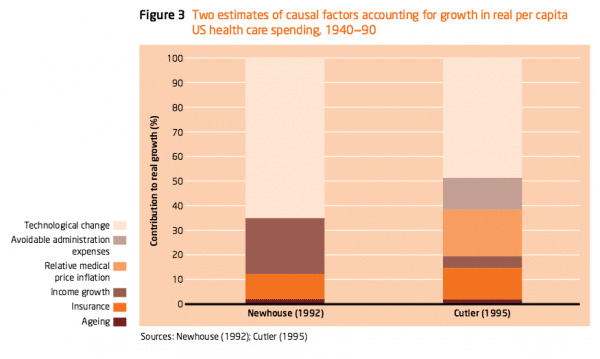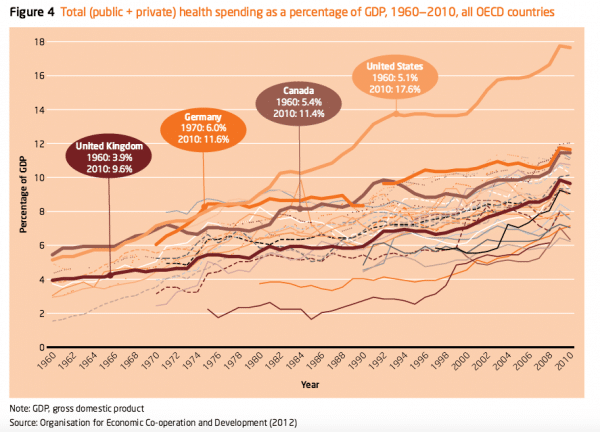Since 1950, health care spending in the UK has increased dramatically in real terms (adjusted for inflation). In the post-war period, we have also seen a sharp rise in public health care spending as a % of GDP (from 3% in 1960 to 8% in 2019). Covid has led to another sharp rise in health spending was a share of GDP. This matches a global rise in health care spending.
- Why is health care spending rising?
- Is there any alternative to increasing healthcare spending?
- Why is a rise in health care spending insufficient to meet demand?
Statistics on healthcare
Health care spending in the UK
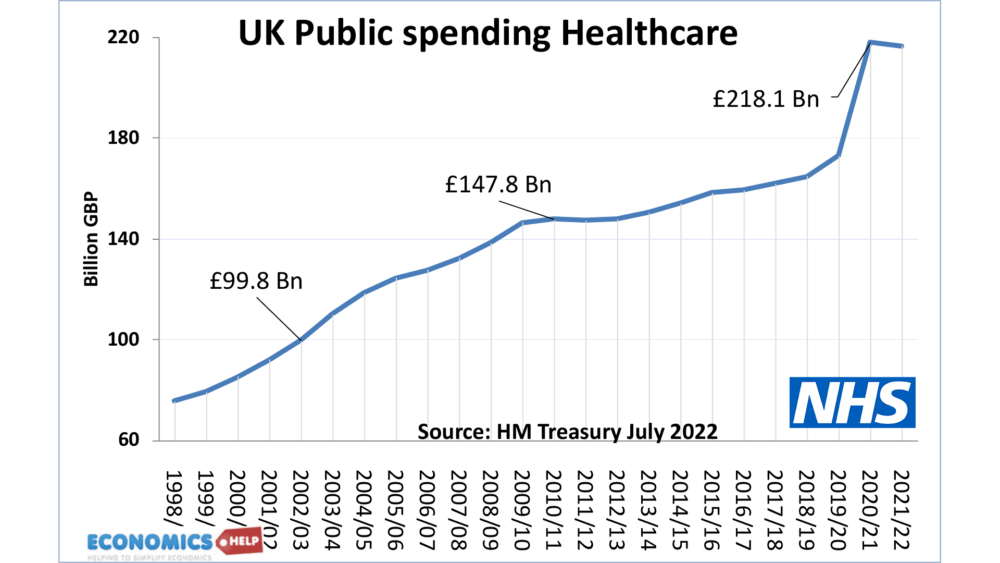
UK Real Public Spending Health Per Capita
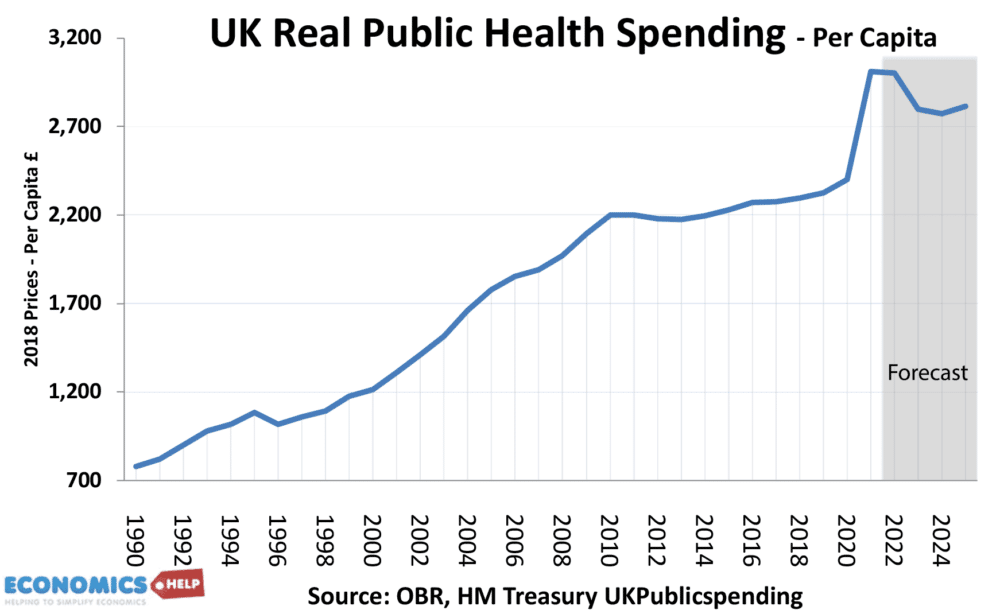
This is healthcare spending per capita and adjusted for inflation.
Health care spending as a % of GDP
- As a % of GDP, health care spending rose sharply 2000-2009
- Health care as % of GDP fell slightly from 2009 to 2019 (the most significant post-war drop)
- Covid saw a boost in spending as % of GDP (also due to falling GDP)
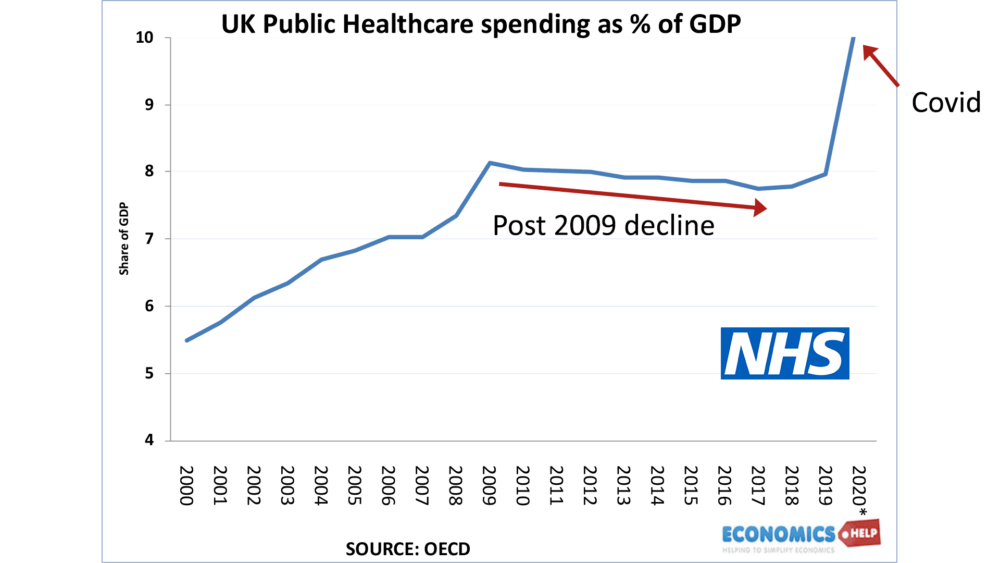
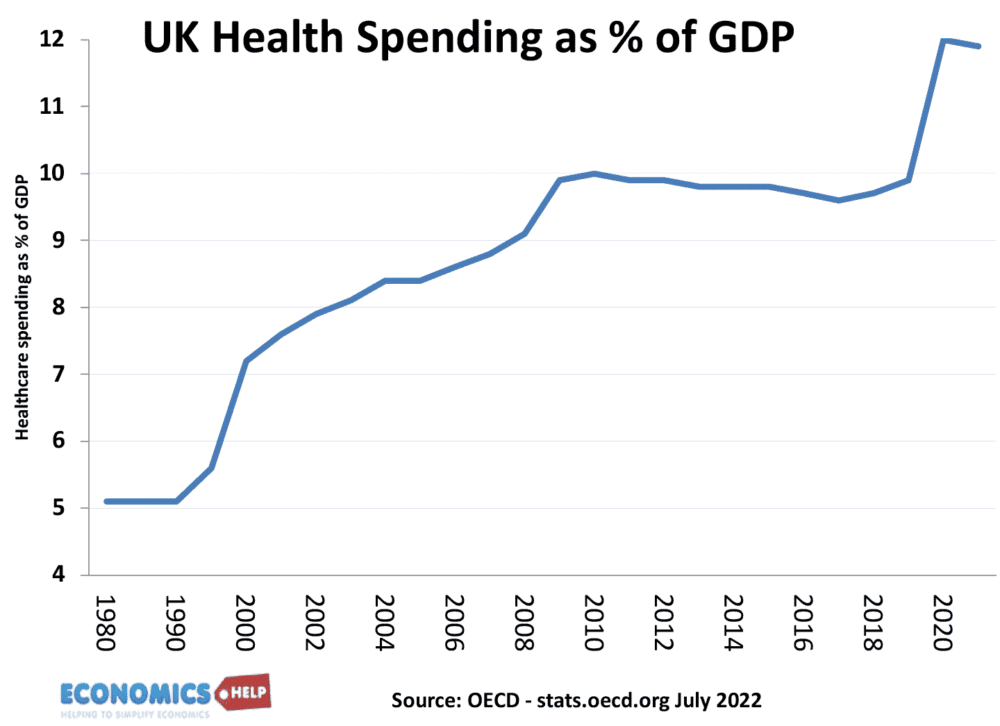
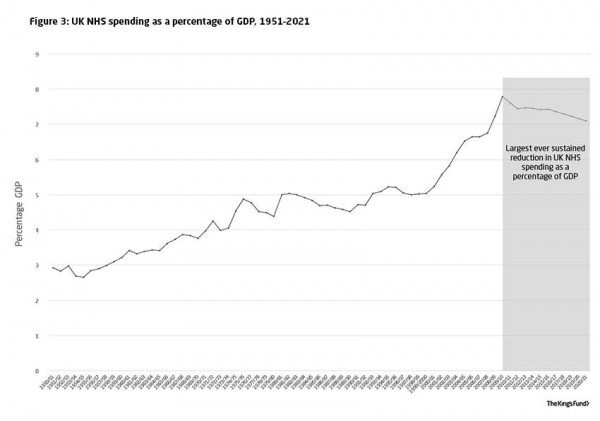
Health care spending Per capita adjusted for demographic trends
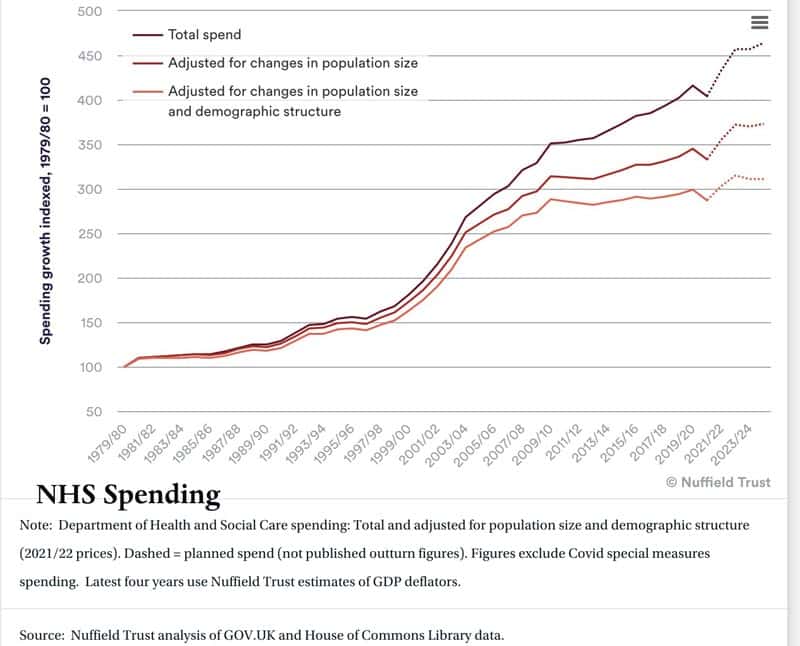
This looks at health care spending per capita adjusted for demographic trends. Why is this important? An ageing population will see higher demand because typically most health care is needed for older people. Therefore, the effective demand for health care depends as much on the age profile of the population as the number of people.
Why is healthcare spending increasing so much in real terms?
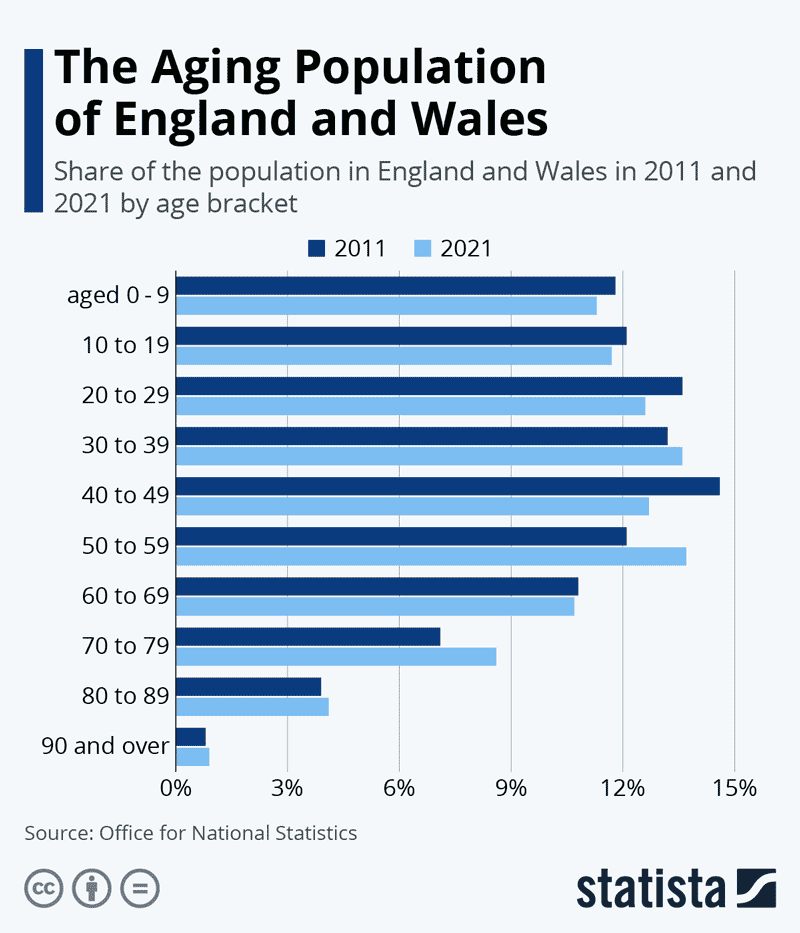
- Medical advances mean that more diseases/health problems can be treated. But, these treatments are increasingly expensive.
- Increased life expectancy has increased the number of old age pensioners who are much more likely to require expensive health care.
- Highest public priority. Health care is frequently cited, by voters as the most important aspect of government spending. The NHS has become a protected department with all political parties aware of the political support for NHS spending.
- Patients have greater expectations of health care. With rising incomes, improved technology and the internet, we become more aware of healthcare possibilities. Increasingly knowledgeable patients will want the best treatment, even if very expensive. We could easily identify health care as a luxury good, as incomes rise, people are willing to spend a higher % of their income on health care (or in the case of the government, devote a higher percentage of tax revenues on health care.)
- Changes in lifestyle. Western economies have seen some improvements in lifestyle, such as a decline in smoking rates. However, there has been a rise in obesity and heart diseases related to stress and physical inactivity. This has caused rising demand for new healthcare services, such as the treatment of diabetes.
- Rising wages relative to productivity. Health care is a labour-intensive service sector industry. Despite technological improvements, these can only marginally reduce health costs. Therefore the core of healthcare cannot see the same productivity improvements that we might see in manufacturing. However, real wages for nurses and doctors need to rise to retain sufficient numbers of doctors/nurses. Therefore, in health care, relative wages to productivity have increased. This can be exacerbated by factors, such as a shortage of nurses often leading to more expensive agency staff
In two surveys into rising health care spending in the US, the biggest factors were considered to be technological improvements.
Source: Kingsfund
Health care spending in international comparison
Source: Kings Fund Rising health care spending is a global phenomenon.
Is there any alternative to increasing health care spending?
To avoid higher health care spending, we would need to see, some or all of the following:
- Improvements in health / improvements in lifestyle / diet.
- Lower costs of health care – e.g. lower wages, lower price of drugs
- Improved productivity – more efficient health care – e.g. treatment at home rather than staying in hospital overnight
- Greater stress placed on avoiding health problems rather than treating the symptoms.
- Being stricter in withdrawing expensive health care, when there are only limited health benefits from treatment.
- Encourage private sector. The UK has one of the highest shares of total health care spending provided by the government, increasing the role of the private sector would reduce the burden on the government.
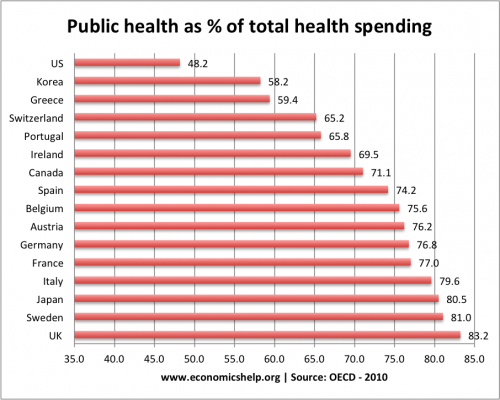
How realistic are these goals?
- Improvements in health. The government may be able to slowly influence behaviour – e.g. higher tax/advertising has helped reduce smoking rates. A similar policy could be implemented for sugar and obesity. (e.g. sugar tax) But, there is great reluctance to see sugar in the same bracket as smoking, and tax at best takes a long time to influence diet and health. There is only so much government policy can do to influence the health of a nation. Many people didn’t expect the diseases of affluence we have seen in recent decades; the next decades could see new unexpected healthcare challenges.
- Lower costs / improved productivity. In practice, reducing health costs is difficult. People often mention well-paid bureaucrats, but as previously mentioned, the bulk of health costs are hard to replace without diminishing the quality of service.
- Withdrawing health care. Doctors already have to make decisions about whether a treatment is worth pursuing. Being stricter and encouraging the withdrawal of health care, is very difficult when it affects people’s lives and chances for survival. With rising expectations, if anything, the opposite is likely to occur with people wishing to try new treatments.
- Private sector. Increasing role of the private sector would simply shift the burden from tax to health care insurance.
Is Health care spending enough?
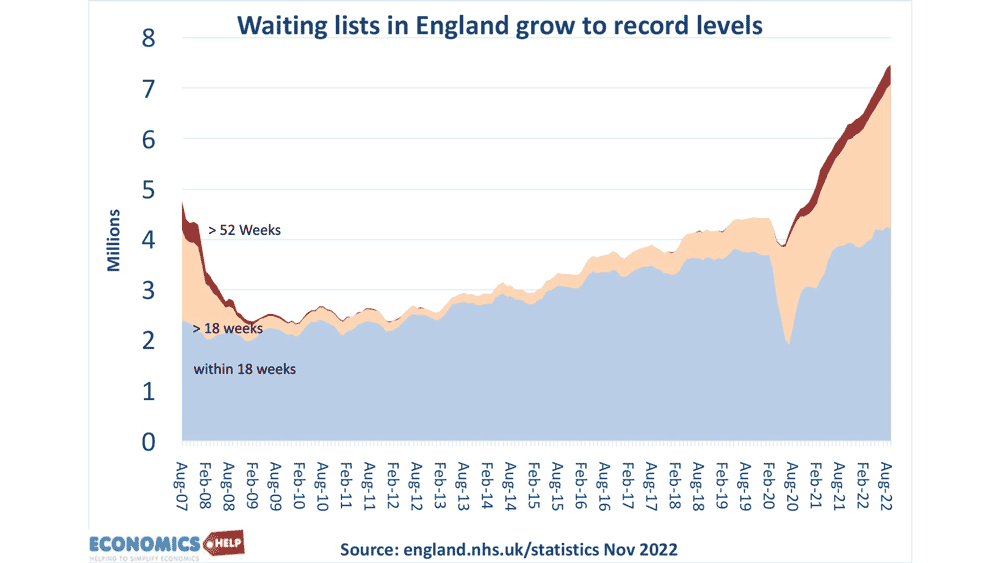
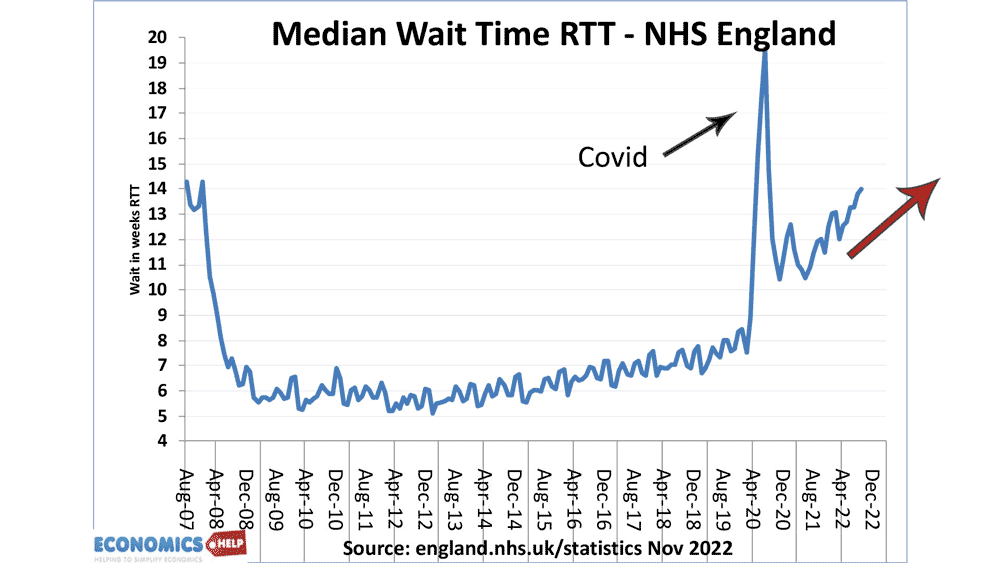
Rise in health waiting lists.
UK Health Care spending per region
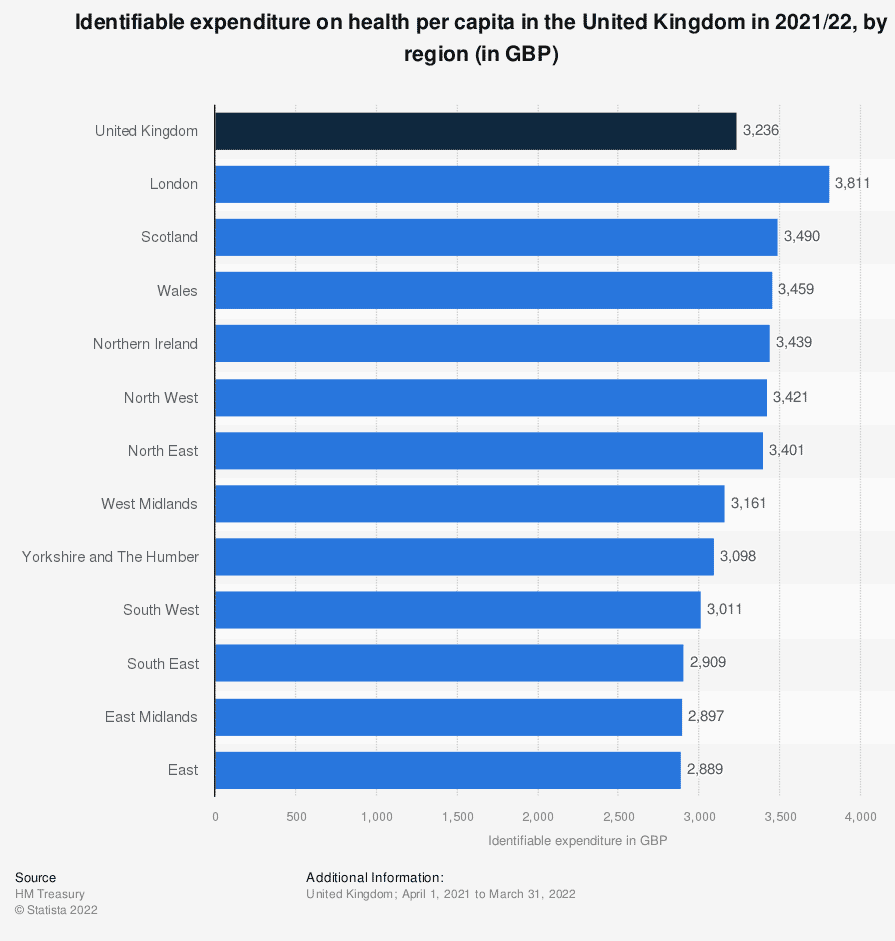
Healthcare spending as % of GDP in Global context
Notes
- This was in 2020 during Covid.
- Healthcare spending includes both public and private
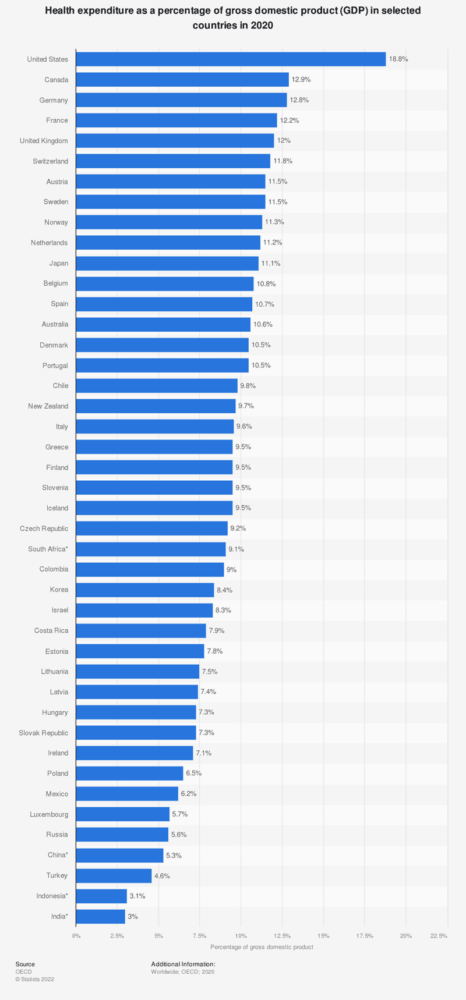
Related

